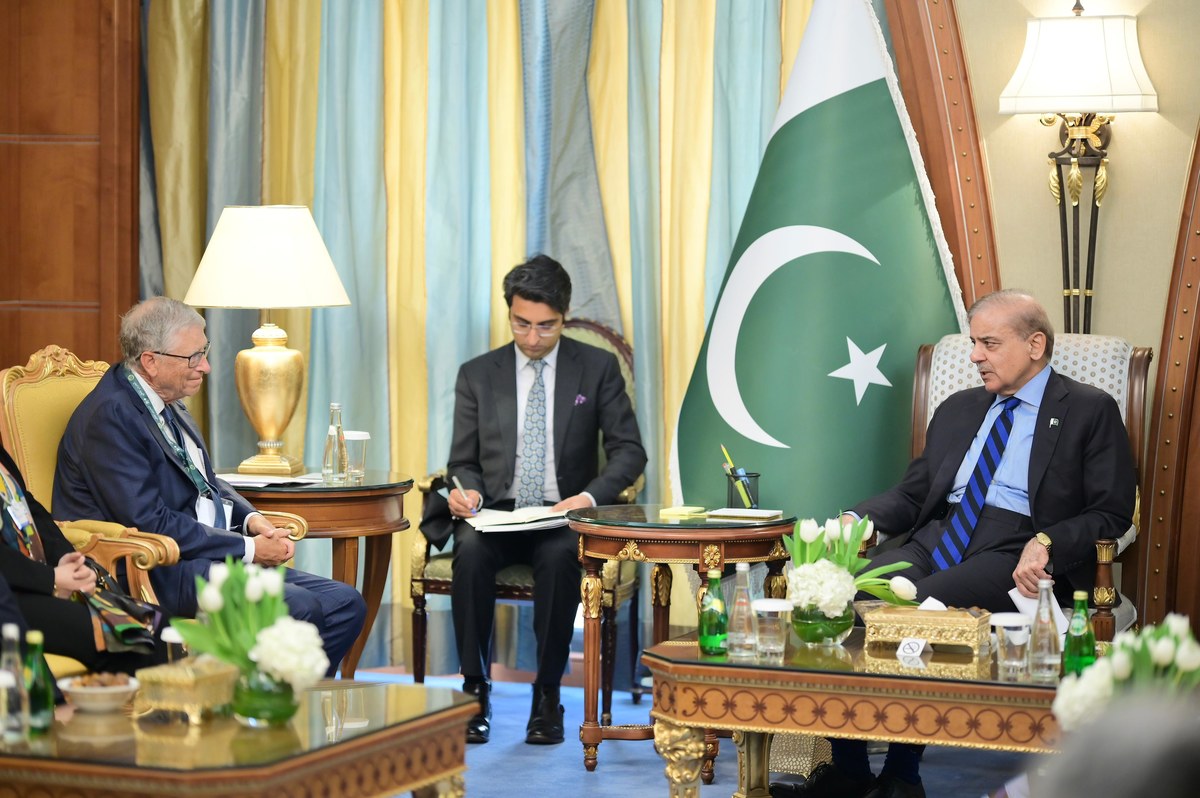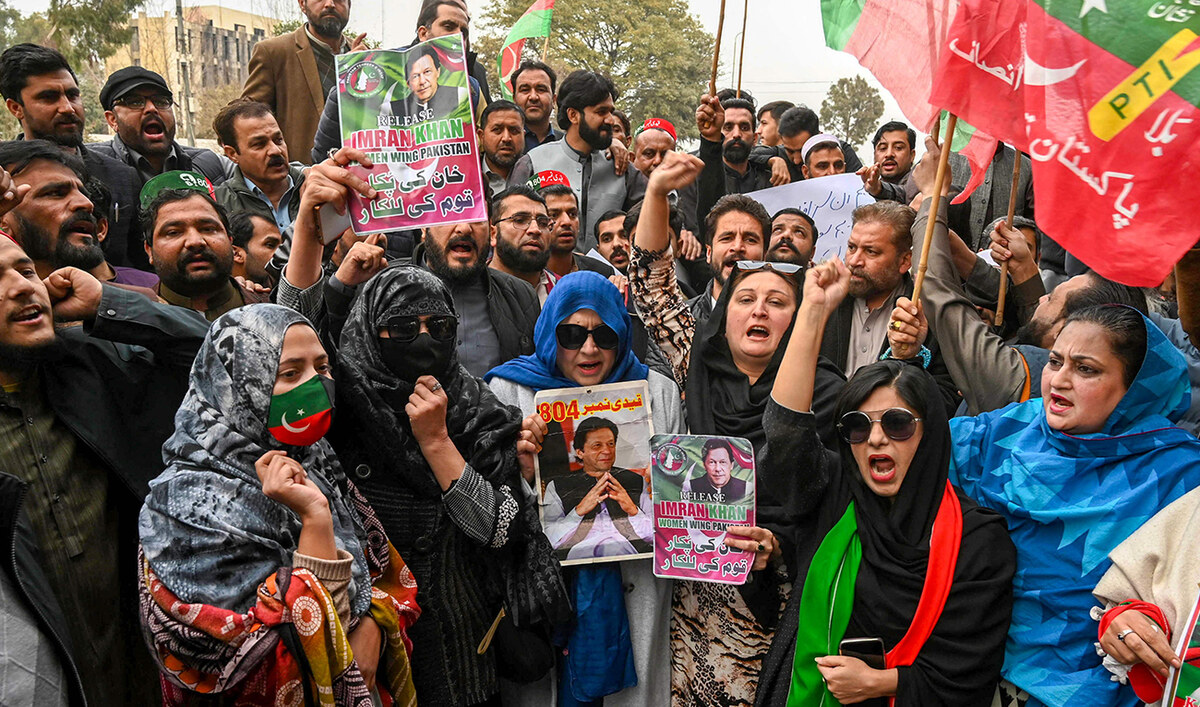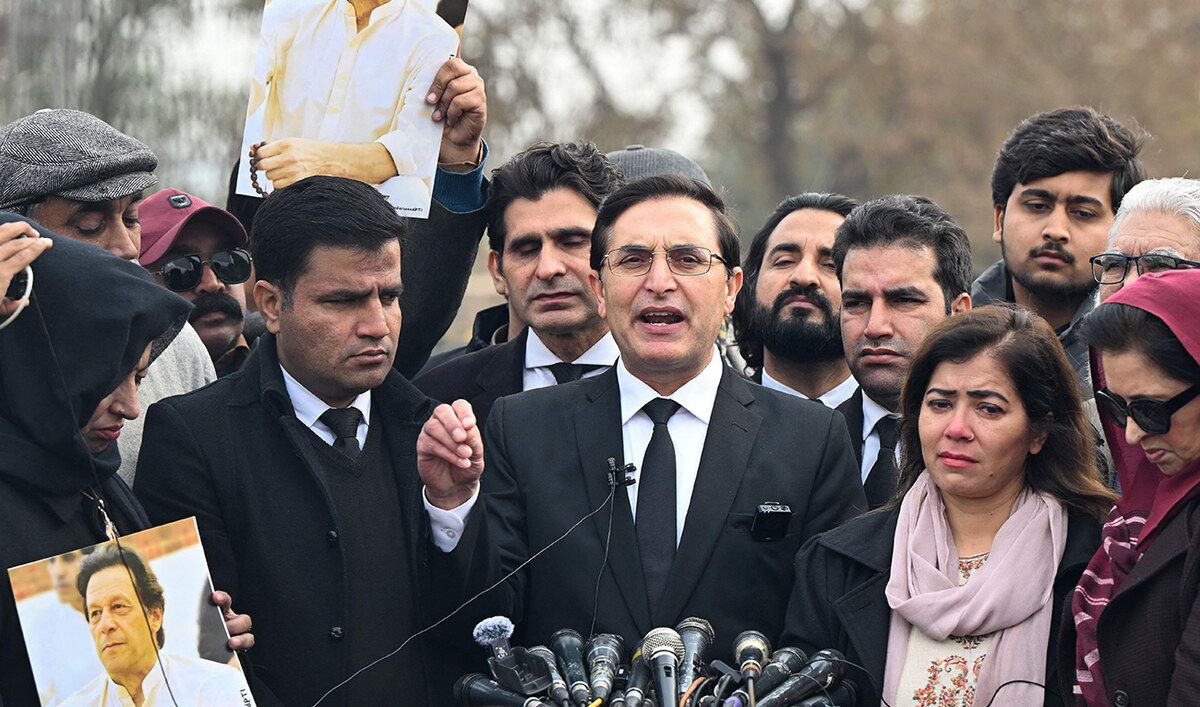ISLAMABAD: Prime Minister Shehbaz Sharif met Saudi Crown Prince Mohammed bin Salman in Riyadh on Sunday evening during which the two leaders discussed bilateral relations between Pakistan and Saudi Arabia, the regional situation and Israel’s war on Gaza, Sharif’s office said in a statement.
Sharif, who arrived in Riyadh on Saturday to attend a two-day special meeting of the World Economic Forum, attended a Special Dialogue and Gala Dinner hosted by the Saudi crown prince in Riyadh. Sharif congratulated the Saudi crown prince for successfully organizing the WEF Special Meeting, the Prime Minister’s Office (PMO) said.
“The Prime Minister conveyed his prayers and good wishes for the health, happiness and long life of The Custodian of the Two Holy Mosques His Majesty King Salman bin Abdulaziz Al Saud,” the PMO said. “In addition to bilateral ties, the regional situation, particularly with regards to the crisis in Gaza, was also discussed.”
Sharif thanked the Saudi crown prince for sending a high-powered delegation, headed by Saudi Arabia’s Foreign Minister Minister Faisal bin Farhan, to Pakistan earlier this month. The delegation held key meetings with Pakistani ministers and businesspersons to enhance economic cooperation between the Kingdom and the South Asian country.
“To continue the discussion, the Prime Minister said that he has brought with him a high-powered delegation to Riyadh, including key Ministers responsible for investment, so that follow-up meetings could take place between relevant officials,” the PMO said.
Sharif reiterated his invitation to the Saudi crown prince to undertake an official visit to Pakistan at his earliest convenience, the PMO added.
Pakistan and Saudi Arabia enjoy strong trade, defense and cultural ties. The Kingdom is home to over 2.7 million Pakistani expatriates and serves as the top source of remittances to the cash-strapped South Asian country.
Both Pakistan and Saudi Arabia have been closely working to increase their bilateral trade and investment, and the Kingdom recently reaffirmed its commitment to expedite an investment package worth $5 billion discussed previously with Islamabad.
Separately, Sharif met Bill & Melinda Gates Foundation (BMGF) co-chair Bill Gates at the sidelines of the WEF meeting on Monday, the PMO said. Both leaders featured in a high-level panel discussion titled “Redefining the Global Health Agenda” on Sunday.
Sharif informed Gates that Pakistan was working tirelessly to eradicate polio from the country. He thanked the BMGF for its longstanding support for polio eradication in Pakistan and said a sustained effort was required by all partners to reach “the ultimate goal of a polio-free Pakistan,” the PMO stated.
“Mr. Gates acknowledged Pakistan’s efforts and said polio eradication was vital to protect future generations from this crippling disease,” the statement said.

Bill Gates (left), co-chair of the Bill & Melinda Gates Foundation (BMGF), calls on Pakistan Prime Minister Shehbaz Sharif in Riyadh, Pakistan on April 29, 2024. (Government of Pakistan)
Apart from polio, the two representatives also discussed progress on ongoing activities between Pakistan and the BMGF in immunization, nutrition, and financial inclusion areas, the PMO said.
Sharif is scheduled to address the closing plenary of the WEF’s meeting titled “Rejuvenating Growth” today, the APP said in a report. Besides the prime minister, other public speakers of the closing plenary include Saudi Minister of Economy and Planning Faisal Alibrahim, British Secretary of State David Cameron, WEF Geneva Børge Brende and WEF Head of Middle East and North Africa Maroun Kairouz.
The prime minister is also scheduled to meet Saudi ministers for trade, energy, environment and agriculture on Monday, the state-run media said. He is also likely to meet his Malaysian counterpart.




















